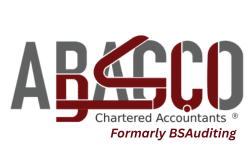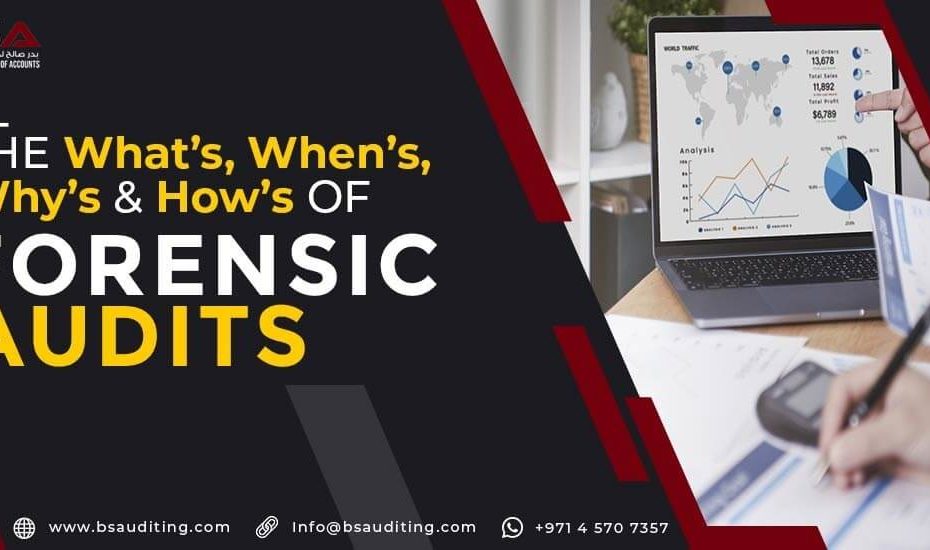A forensic audit is a term that stirs concern and a hint of fear among professionals and nonprofessionals alike, and for good reasons. It is a complex process, which involves an exhaustive analysis of financial statements and transactions down to the last penny. The term “forensic” as a noun means scientific tests or technologies used to detect a crime. Forensic audits refer to an intricate analysis of accounts and transactions to look for any scams. This article will explain the term, its procedures, and the conditions under which such a procedure is performed.
The “What” of Forensic Audits
Forensic audits are detailed analyses of the financial assets of a company or individual to look for any inconsistencies, fraud, or corruption. The main difference between a regular audit and a forensic audit is that the latter involves the presentation of findings and the auditor in court. A forensic auditor is better equipped with knowledge of legal processes along with knowledge of accounts and therefore specializes in the task. There are companies that specialize in this field and provide a forensic auditor especially upon the company’s request or court’s orders.
Forensic auditors work with forensic accountants to uncover the truth. Forensic accountants draw detailed money trails, transactions and identify embezzlements, all through tedious investigation, which sometimes involves third parties too. Forensic auditors then analyze the motives behind the crime, how it was conducted and how it was concealed.
The “When” of Forensic Audits
As mentioned, forensic audits are conducted in cases where there are suspicions that an individual within a company, or the company itself, has been involved in illegal activities that relate to its financial transactions. Specialized auditors are called upon, and they sift through the financial data to look for any discrepancies. Their findings are then presented before the court.
The process is applied for other legal purposes too, such as divorces where assets have to be identified and their values calculated for settlements and division. It is used when a company goes into bankruptcy or is being closed down.
The “Why” of Forensic Audit
Common causes in which such a service is required are:
Corruption.
Corruption involves three cases. The first one is where an employee indulges in fraud for personal gains that cause financial loss to the company. Instances include situations where an employee provides unjustifiable benefits to his subordinate on the basis of personal relations or in an agreement of mutual benefit through inconsistencies.
The second case is of bribe, which is offered to get one’s work done. The person offering the bribe may be the employee or the supplier, vendor, or customer. A common example of bribery is the recruitment process in several companies where candidates offer money and other perks to employees for securing their position in the company.
The third case involves situations where money is demanded instead of being offered. The employee, or vendor, or customer demands monetary benefit in exchange for their illegal service or getting the work done. This is known as extortion and is common in large-scale businesses where employees may ask vendors for monetary benefits in exchange for getting their products or services through into the company.
Embezzlement of Assets
Creation of fake receipts and transactions, stealing money from the company’s assets or accounts, stealing items from the company’s inventory, creating “ghost” employees and sending them salaries, making payments to non-existent suppliers, or using the company’s name for personal gain, are all examples of asset misappropriation.
Frauds in Financial Statements
In such a case, the employees twist accounts and create fabricated data to either present lesser or more assets and financial statements than actual. Such data is compiled to wiggle out of tax filing, get more funds in budgets or conceal financial discrepancies.
The “How” of Forensic Audits
Forensic audits are extensive and intensive work that takes several months, and in some cases, years to conduct. The more complicated and multi-layered the crime, the longer it takes to uncover it. Key processes involved in the audit are:
Planning
Companies assign specialized forensic auditors who take up the job of identifying the criminal individual or company. Auditors analyze all present facts to:
- Identify the type of fraud. Whether it is corruption, bribery, extortion
- Identify the person involved. Whether it is an individual within the company or outside. In addition, whether it is one person or many.
- Determine the time period for which the fraudulent activity continued
- Calculate the amount of financial loss incurred
- Determine how the crime was concealed
- Design strategies to prevent such inconsistencies from happening in the future.
Proof Collection
This is perhaps the real and tricky part. Once the possible preparatory(s) of the crime have been identified, auditors strive to gather sufficient evidence to back their accusation. The process is an exhaustive one and requires immense precision, accuracy, alertness, and analytical skills.
Data Assessment: Present data is analyzed to look for loopholes and identify problems. Documents, company trends, flows, all are subjected to a detective analysis.
Technology-based Assistance: Modern technology is also employed, such as location, time and other details of the computer system.
Interviews and Discussion: employees are interviewed and asked questions that may help in identifying the culprit
Reporting
After completion of the investigation process, the auditors compile their findings in a detailed report. The report provides a detailed account of the type of fraud committed, identifies the culprit, financial loss, method of concealing the fraud, and time duration. The report is the answer to all questions asked during the planning process.
Court Appearance
The Forensic auditors are asked to present, and support, their findings in legal proceedings. All proofs are presented before the court. With the aid of presented evidence, the court orders punishment to the culprit. And thus a forensic auditor successfully helps in preventing any further loss to the company.
Conclusion
Forensic audits are a tedious task that involves the combined tasks of a detective, an investigator, and a law enforcer. It is due to this reason that forensic audits are a crucial element to auditing and accounting firms. The extensive knowledge and expertise of a forensic auditor are the key requirements for the purpose.
Bader Saleh Auditing of Accounts provides efficient internal audit, external audit, and accounting services. Our skilled and professional staff provide the best consultancy and even better services.
Feel free to book your consultation at:
- Office # 0641, Tamani Arts Offices, Business Bay, P.O. Box 111390, Dubai, UAE
- +971 4 570 7357
- +971 58 108 5690
- info@bsauditing.com


